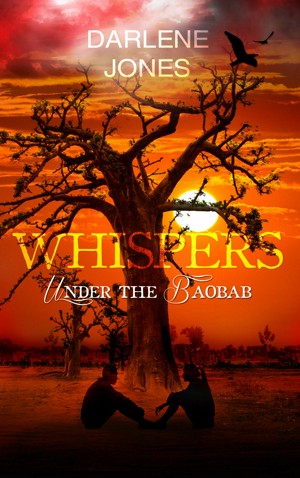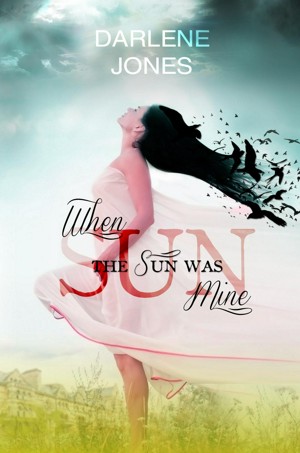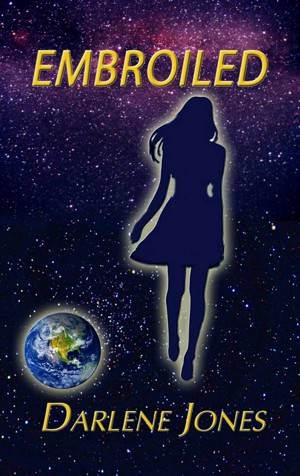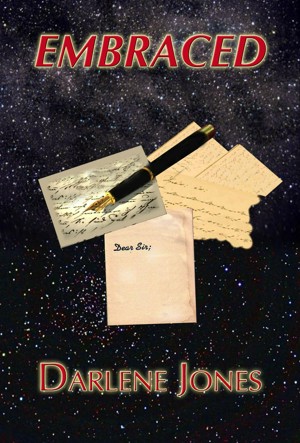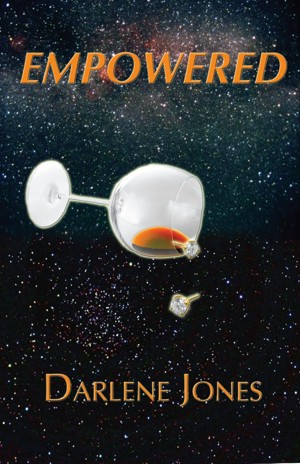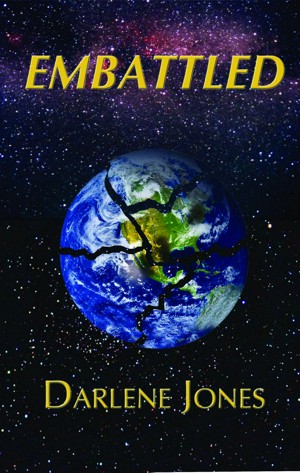Member Since:
Sep. 09, 2011
4 readers have added this author as a 'Favorite Author'.
Darlene Jones
Biography
Darlene Jones is a retired educator and writer. A graduate of the University of Alberta she was a teacher, principal, second language consultant, and staffing officer with Edmonton Public schools. Her multiple roles included second language curriculum development for secondary students. After retiring she continued to provide educational workshops for teachers in the province of Alberta.
Her career began as a volunteer with Canadian University Services Overseas. She taught school in Mali and it was the plight of the Malians that inspired her to write her first novel—science fiction—described by readers as a "think piece."
She continues to write fiction that incorporates topics such as world affairs, aging, and Alzheimer's, with the added mix of adventure, romance and humor.
Her career began as a volunteer with Canadian University Services Overseas. She taught school in Mali and it was the plight of the Malians that inspired her to write her first novel—science fiction—described by readers as a "think piece."
She continues to write fiction that incorporates topics such as world affairs, aging, and Alzheimer's, with the added mix of adventure, romance and humor.
Where to find Darlene Jones online
Website: http://darlenejonesauthor.com
Series
Books
Whispers Under the Baobab
by Darlene Jones
Price:
$3.99 USD.
Words: 67,510.
Language:
English.
Originally Published: April 25, 2017
by
Darlene Jones.
Categories:
Fiction » Adventure, Fiction » Romance » Suspense
When rebel leader, Sidu Diagho's life is threatened by evidence of his actions, he must find and destroy the reporter's files and silence the girl who may know too much.
When the Sun Was Mine
by Darlene Jones
Price:
$2.99 USD.
Words: 44,720.
Language:
English.
Originally Published: October 7, 2015
by
Darlene Jones.
Categories:
Fiction » Romance » Suspense, Fiction » Mystery & detective » Amateur sleuth
Brit is determined to help Flo, who may or may not have Alzheimer's, but it's Flo who may have the biggest surprise for her young friend.
Mali to Mexico and Points in Between
by Darlene Jones
Price:
$1.99 USD.
Words: 30,970.
Language:
English.
Originally Published: April 3, 2014
by
Darlene Jones.
Categories:
Nonfiction » Entertainment » Humor & satire » Topic / relationships, Nonfiction » Entertainment » Humor & satire » Form / anecdotes & quotations
I have to tell you a story. Excerpts from a life well lived including stories of my travels, my friends, my family, and my career as a teacher. .
Embroiled
by Darlene Jones
Series: Em and Yves, Book 4.
Price:
$2.99 USD.
Words: 71,360.
Language:
English.
Originally Published: April 18, 2013
by
Darlene Jones.
Categories:
Fiction » Science fiction » General, Fiction » Romance » Fantasy
Emily is obsessed with the notion of going "up there." She arrives to a world in crisis. Saving it and the man she loves is up to her.
Embraced
by Darlene Jones
Series: Em and Yves, Book 3.
Price:
$2.99 USD.
Words: 79,870.
Language:
English.
Originally Published: August 30, 2012
by
Darlene Jones.
Categories:
Fiction » Fantasy » Urban, Fiction » Science fiction » General
(4.00 from 1 review)
Could the clickings Abby hears in the fillings of her teeth be messages from aliens?
Empowered
by Darlene Jones
Series: Em and Yves, Book 2.
Price:
$2.99 USD.
Words: 85,230.
Language:
English.
Originally Published: March 24, 2012
by
Darlene Jones.
Categories:
Fiction » Romance » Sci-fi, Fiction » Romance » Paranormal » General
(5.00 from 1 review)
Is Jasmine crazy to let the visions she experienced as a child rule her life?
Embattled
by Darlene Jones
Series: Em and Yves, Book 1.
Price:
Free!
Words: 72,110.
Language:
English.
Originally Published: November 6, 2011
by
Darlene Jones.
Categories:
Fiction » Fantasy » Urban, Fiction » Science fiction » General
(3.50 from 2 reviews)
My face is on every television, in every newspaper. They say I'm saving the world.
Darlene Jones' tag cloud
adventure
alien contact
aliens
alzheimers
animals
body guards
boomer lit
coming of age
communication
coup
deception
destiny
dictator
dreams and visions
emotions
excons
family
feelgood
friendship
gods
gods promises
heaven
humor
hypnosis
kidnapped
magical powers
mali
mental telepathy
metaphysical novel
mexico
mind reading
mystery
other worlds
rebel leader
reincarnation
romance
romantic suspense
sahara
school teachers
science fiction
science fiction romanc
science fiction series
second chances
secret codes
soulmate romance
strong female lead
students
superhero
teachers
teaching
travel
undercover
visionary
watcher
whishes
world affairs


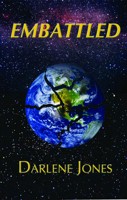
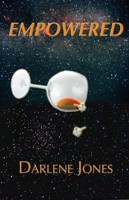 Empowered
Empowered
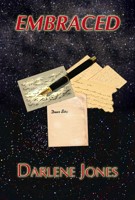 Embraced
Embraced
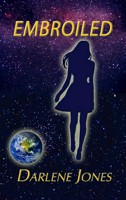 Embroiled
Embroiled
